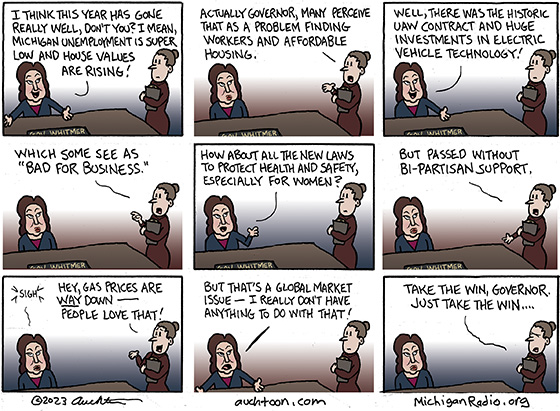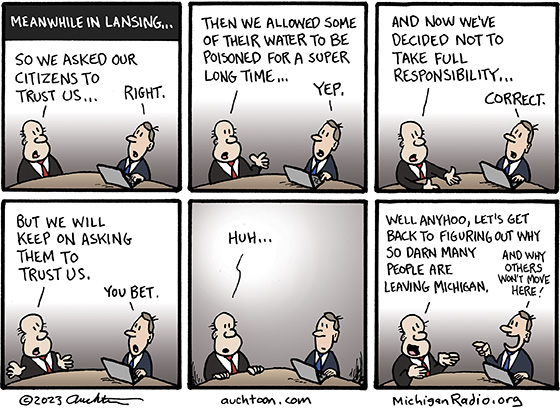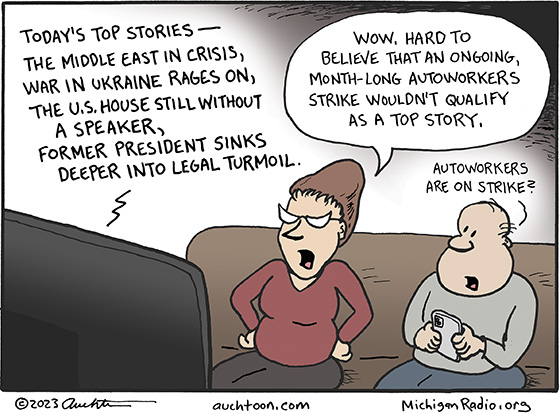Build a Wall

After years of stagnant (at best) population growth, Michigan is scrambling for ways to keep Michiganders from moving out, especially young people.
Of course it’s ridiculous to think that building walls would be effective in keeping people in — but no more ridiculous than thinking a 1,954 mile wall along the Mexican border would be effective in keeping people out.
Instead of building barriers in 2024, perhaps we should focus on problem solving the source issues. Happy Holidays, Merry Christmas, and here’s to a world with less walls in the new year!










